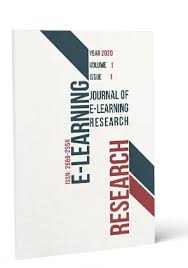The Importance of Academic Journals
Academic journals play a crucial role in the dissemination of scholarly research and knowledge across various fields of study. These peer-reviewed publications serve as a platform for researchers, scholars, and academics to share their findings, theories, and discoveries with the wider academic community.
One of the key benefits of academic journals is their role in maintaining the quality and integrity of research. The peer-review process ensures that articles published in these journals undergo rigorous scrutiny by experts in the field, helping to validate the research methodology, results, and conclusions presented.
Furthermore, academic journals provide a permanent record of research findings, allowing future generations of scholars to build upon existing knowledge and contribute to the advancement of their respective fields. By citing previous studies published in academic journals, researchers can establish the foundation for their own work and demonstrate how their research fits within the broader scholarly landscape.
In addition to facilitating knowledge exchange and collaboration among academics, academic journals also play a vital role in promoting interdisciplinary research. By publishing articles that span multiple disciplines, these journals encourage cross-pollination of ideas and methodologies, leading to innovative solutions to complex problems.
Overall, academic journals are essential tools for advancing scientific inquiry, fostering intellectual debate, and promoting evidence-based decision-making. As such, they continue to be a cornerstone of academic scholarship and a valuable resource for researchers seeking to contribute meaningfully to their fields of study.
Five Essential Tips for Navigating Academic Journals Successfully
- Select journals that are relevant to your field of study.
- Read the author guidelines carefully before submitting your work.
- Cite reputable journals in your own research to strengthen your arguments.
- Consider open-access journals for increased visibility of your work.
- Engage with the academic community by attending conferences related to journal topics.
Select journals that are relevant to your field of study.
When engaging with academic journals, it is essential to select publications that are directly relevant to your field of study. By choosing journals that align with your research interests and expertise, you can ensure that your work reaches the appropriate audience and contributes meaningfully to the scholarly discourse within your discipline. Targeting relevant journals also increases the likelihood of receiving constructive feedback from peer reviewers who possess a deep understanding of the subject matter, ultimately enhancing the quality and impact of your research contributions.
Read the author guidelines carefully before submitting your work.
It is essential to carefully read the author guidelines before submitting your work to academic journals. These guidelines provide valuable information on formatting requirements, citation styles, word limits, and submission procedures specific to each journal. By following the author guidelines diligently, you can increase the chances of your work being accepted for publication and ensure that it meets the editorial standards of the journal. Paying close attention to these instructions demonstrates your professionalism and commitment to producing high-quality research that aligns with the publication’s expectations.
Cite reputable journals in your own research to strengthen your arguments.
When conducting research, it is essential to cite reputable academic journals to bolster the credibility and strength of your arguments. By referencing well-established and respected sources in your field, you demonstrate a solid foundation for your own work and show that your research is grounded in established knowledge and methodologies. Citing reputable journals not only adds authority to your arguments but also helps to build a coherent and persuasive narrative that contributes meaningfully to the ongoing scholarly discourse.
Consider open-access journals for increased visibility of your work.
Consider open-access journals for increased visibility of your work. Publishing in open-access journals allows for unrestricted access to your research findings, making them more widely available to researchers, practitioners, and the general public. This increased visibility can lead to greater impact and citation rates for your work, as well as potential collaborations with other researchers in your field. By choosing open-access journals, you can ensure that your research reaches a broader audience and contributes to the advancement of knowledge in your area of study.
Engage with the academic community by attending conferences related to journal topics.
Engaging with the academic community by attending conferences related to journal topics is a valuable tip for researchers and scholars looking to stay updated on the latest developments in their field. Conferences provide a platform for networking, sharing research findings, and exchanging ideas with fellow academics and experts. By participating in these events, researchers can gain new insights, receive feedback on their work, and establish connections that may lead to collaborative opportunities or future publication in academic journals. Attending conferences not only enhances one’s knowledge base but also fosters a sense of community and camaraderie within the academic world.

No Responses